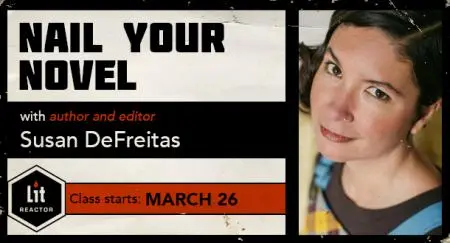If you’ve read more than three or four articles on writing and publishing, you’ve no doubt seen beta readers emphasized as a critical component of any successful writer’s team. It seems there’s hardly a published author out there who doesn’t gush about how great these people are, how she wouldn’t be where she is without their astute eye and insightful comments.
But many an aspiring novelist has carefully assembled a group of writer friends (or reader friends), endured “the ask” (“I’m sorry, but do you think you might be willing…?”), and sent off that 80K-word document they’ve worked so hard on, only to hear…absolutely nothing back.
On one hand, your book might be total crap, and your friends just don’t want to break it to you. On the other, your friends might be total assholes.
But if you’re serious about this whole writing thing, and so are they, there’s a good chance they stopped reading for another reason entirely—a reason that perhaps even they don’t know how to articulate, because they’re not in the business of helping people make their books work.
That’s what I do. And I’m here to tell you that nothing—I mean nothing—makes a novel harder to follow, much less care about, than not knowing what it is the characters want. If your reader loses track of your protagonist’s goal at virtually any point in the novel, they’ll become frustrated (often without even knowing why).
The story coach Lisa Cron likens this to watching football with the sound turned off, without knowing what the rules of football are. Why did this guy kick the ball to the other one? Why did he tackle that other guy? If you don’t know the rules of football, it’s virtually impossible to tell.
But let’s just say, for the sake of argument, that you’re a patient observer, and you’re determined to figure out the rules of this game. The first thing you’re likely to pick up on is that there’s some kind of conflict happening—you can see that the guys in red must be trying to get the ball to the other end of the field, because they keep trying to do so and the guys in blue keep trying to stop them. You might not be able to figure out why the ref keeps blowing his whistle, or what those numbered lines are all about, but you can at least figure that much out, because in life as in fiction, conflict clarifies goals. (Want to make it clear what your characters really want in a scene? Have them fight about it.)
Even so, though, it’s not just what your characters want that needs to be clear, it’s why they want it—and the more specific their reason, the better.
In football, those guys down there on the field might be taking those punishing blows because they’re paid to do so, or because they want their team to win. But those kind of general motivations aren’t what newscasters talk about when they spin the sorts of narratives that keep sports fans hooked—because in sports as in fiction, it’s not a general sort of goal that’s interesting. (He wants to find the treasure because he wants money! Everyone wants money!)
Rather, it’s the individual stories of individual players and their individual motivations that are fascinating to us, whether it’s the late-life hero of decades past who wants just one more chance at the Super Bowl or the fresh young rookie who grew up in the projects and now has a chance to take that old guy’s place. (Or, when it comes to fiction, the guy who wants the money because his dad always told him he’d never amount to anything.)
Which is to say, in order for your reader to keep turning the pages, they must understand not only what the characters want, but specifically why they want it.
There are many different ways for the reader to lose track of your characters’ goals and motivations in a novel, and over my years as a freelance editor and book coach, I’ve seen them all. I’ve also developed a system writers can use to ensure this doesn’t happen, and guess what? I’m going to be sharing it in my upcoming class here at LitReactor, Nail Your Novel.
If you’ve ever had someone promise to read your book and fail to, it’s time to take a step back. Are you making it easy to follow what’s going on, and why? Are you giving the reader the information she needs to get swept up in the emotions of the story, and the drama unfolding on the page? Or are you assuming all that is obvious?
Needless to say, these are issues you’ll want to address before your novel is in the hands of agents and editors—or, if you’re self-publishing, the people who’ve plunked down actual cash for your book. Because when those people stop reading, unlike your beta readers, they do respond, often in less than favorable ways.
Now it’s your turn. Have you worked with beta readers? If so, what was most helpful about their feedback?
Alternately, have you ever been a beta reader? If so, what was your biggest issue as a reader with the novel-in-progress?
Read Dirty Little Secrets Part One: Why No One Cares About Your Protagonist

About the author
An author, editor, and educator, Susan DeFreitas’s creative work has appeared in the Writer’s Chronicle, Story Magazine, the Huffington Post, Daily Science Fiction, and Southwestern American Literature, along with many other journals and anthologies. She is the author of the novel Hot Season, which won a Gold IPPY Award for Best Fiction of the Mountain West, and holds an MFA from Pacific University. She divides her time between Santa Fe, New Mexico, and Portland, Oregon, and has served as a freelance editor and book coach since 2010.









